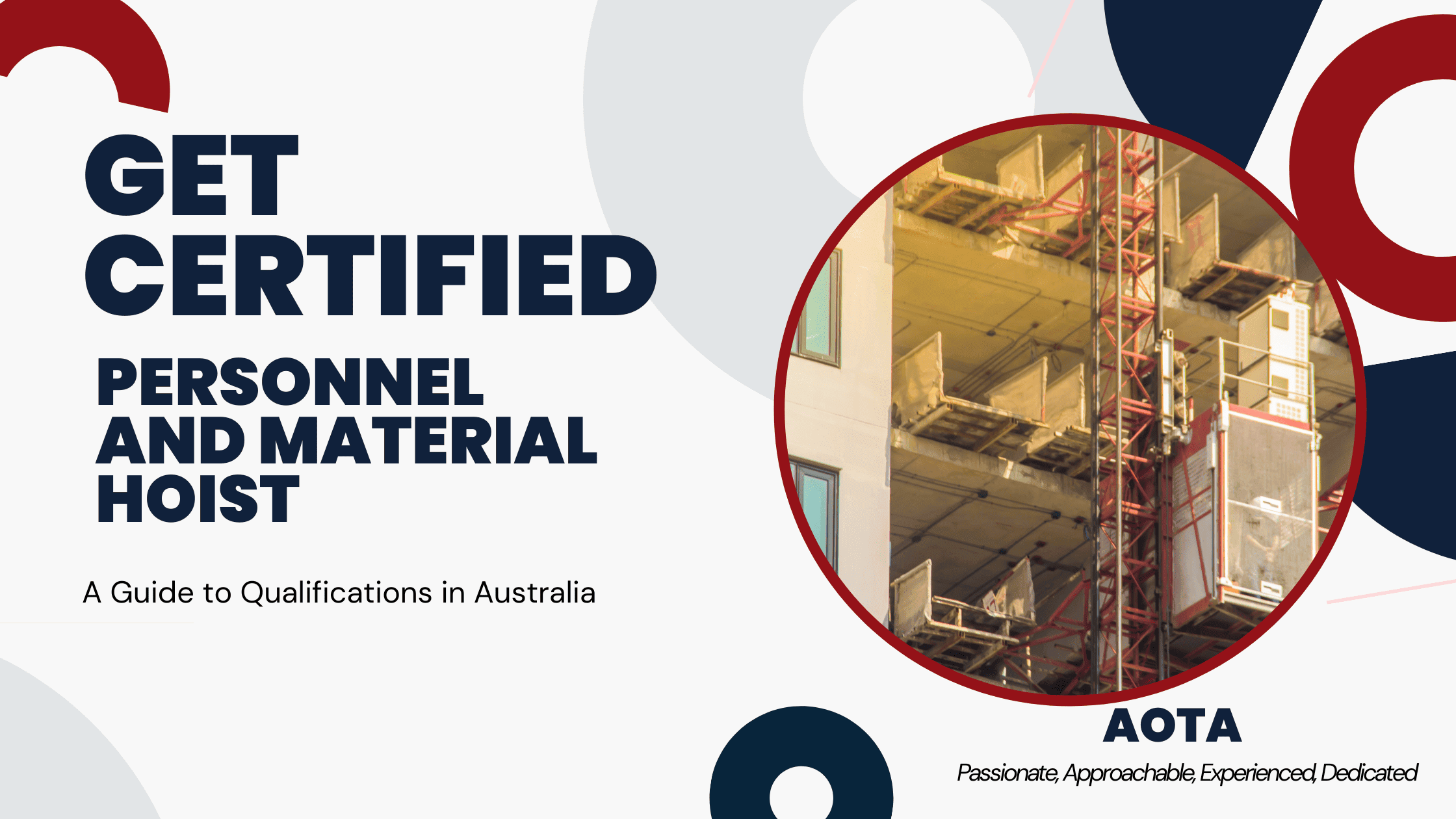Understanding the Role and Importance of Hoist Qualifications in Australian Industry
The importance of Personnel and Materials Hoist (PMH) has grown exponentially in recent years as Australian industries develop rapidly. This article aims to shed light on the training opportunities, relevant legislation, versatile applications, career prospects, and the significance of continuous professional development for individuals already qualified.
The Critical Role of Personnel and Material Hoist
PMH has become an essential tool for various industries as it serves the crucial function of transporting people, materials, and equipment to elevated work stations in a swift and secure manner. The diverse applications of PMH across different industries include:
Construction: In high-rise buildings and infrastructure projects, hoists are extensively employed to lift people, tools, and raw materials.
Mining: Hoists play a vital role in mining operations by lowering personnel and equipment into mine shafts and raising extracted resources to ground level.
Manufacturing: Within the manufacturing industry, heavy-duty hoists are used to manage bulky goods throughout the different production stages.
Renewable Energy: Hoists are heavily involved in renewable energy projects, such as wind farm construction, by erecting turbine towers and transporting maintenance staff.
Training and Relevant Legislation
With the complexity and hazards associated with operating PMH, Australia has placed strict regulations and licensing requirements on their use. Those interested in securing a career in this field must undergo specific training and obtain the necessary license.
Training and High-Risk Work License (HRWL)
The training process focuses on three primary aspects:
Understanding relevant Australian Standards and safety regulations
Performing pre- and post-operational safety checks
Developing proficiency in operating and controlling the hoist
After completing a nationally recognised training course from an approved provider, a candidate is eligible to apply for the HRWL under the category of materials and personnel hoists.
Respecting Legal Frameworks
To ensure safe operations and compliance, operators must be aware of and adhere to various legal requirements and legislative frameworks. These include:
Australian Standards (AS 1418.1:2021 (Cranes, hoists and winches, Part 1: General requirements)
Adhering to these guidelines helps create a secure work environment and prevents accidents and legal issues.
Career Opportunities for Qualified Operators
As the demand for qualified PMH operators increases, there are several career opportunities in various sectors. License-holding individuals can find roles within:
- Construction companies
- Equipment rental firms
- Shipping ports
- Mining companies
In addition to the above, plant and facility maintenance units, agricultural and marine industries also offer various employment opportunities for skilled hoist operators.
The Importance of Updating Skills and Staying Informed
For professionals in the PMH space, consistently updating skills and staying informed is crucial to remaining relevant and competitive. Staying current involves:
Participating in refresher courses: To keep up with industry changes and advancements in technology
Monitoring regulatory changes: To ensure compliance with updated safety guidelines and laws
Maintaining the HRWL: Routinely renewing the license to meet the validity requirements
Attending industry seminars and workshops: To gain knowledge on best practices, safety innovations, and emerging trends
By continually honing their expertise, professionals can safeguard their careers and contribute to the ongoing success of their respective industries, the importance of Personnel and Materials Hoist in Australia’s dynamic and growing industries cannot be understated. By obtaining the right training, understanding the relevant legislation, and seeking diverse career opportunities, aspiring hoist operators can secure a successful future in this field. And for those already qualified, staying updated and continuously improving their skills is the key to thriving and staying ahead in this rapidly evolving domain.
As always, I remain dedicated to your workplace safety. If you have any questions or suggestions for future blog topics, please do not hesitate to reach out. Until next time, stay safe and be well.
Dedicated to your workplace safety,
Nigel
